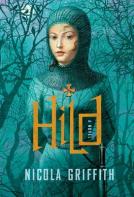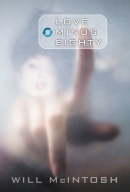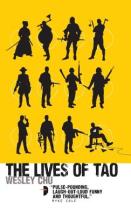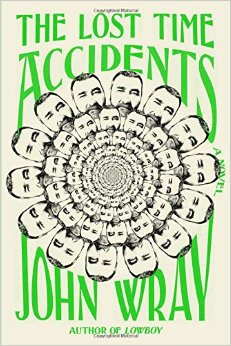It’s time for blurbs! In the past two weeks, diverse literature has been consumed, and here are the results:
 Nicola Griffith, Hild
Nicola Griffith, Hild
If any book could kick my ass harder in the history department, it’s this one. Turns out, I know very little about 7th century Britain. I obviously know very little about Hild, but that’s the case for everybody, because the only mention of her is in a couple of pages by the Venerable Bede in his writings on Anglo-Saxon conversion to Christianity. This is why this book is an amazing feat of research. Keep in mind that Hild is, of course, fiction, but it’s the kind of fiction that makes you want to dive into some history books.
I found it hard to read this one in small chunks. It’s partly my personal problem: I have a rather shoddy memory for characters and plot in general, so if enough time passes between readings, I am liable to forget who is who. The fact that a lot of people in this book have similar-sounding Anglo-Saxon names does not help. I did find myself with a few uninterrupted hours on Saturday, and binged on this book until I finished it.
If I were to describe Hild in a few words, I’d say that it has heft. It has some kind of palpable substance to it that I cannot quite express in words. It is much like a slow roast — dense, substantial, and deeply satisfying. In fact, I almost found myself too intimidated by this book to write any kind of review, so this blurb is all you get.
 Will McIntosh, Love Minus Eighty
Will McIntosh, Love Minus Eighty
Ok, I admit it, I picked this one up based entirely on the cover, because the ‘love’ part did not do it for me. It never really does. I’m not big on romance in my books. But it turned out to be a great book! Romance is not really the point of it at all. The point is how money or lack thereof divides society, and how this kind of division coupled with technology can lead to questionable, morality-wise, arrangements. Here we have cryogenics, and people can get frozen in case they suffer a gruesome and terrible accident that leaves them with no working internal organs. Unfreezing, however, is trickier because it costs a lot of money. But say you are a very pretty young woman, and maybe someone will pay money to revive you just so you can be their wife. And so the ‘Bridesicle’ business is born. This sounds awful (chilling? ha!), but what’s truly awful is that you can totally see some corporation thinking this could be a viable business model if such technology were available. In any case, Love Minus Eighty is a great example of thought-provoking sci-fi that is essentially about human relationships, societal structure, and technology, all tied together.
 Wesley Chu, Lives of Tao
Wesley Chu, Lives of Tao
This seemed very John Adams-esque to me when I read the blurb on the back. Roen Tan, who is essentially a walking fat geek stereotype (though he does seem to have a job) wakes up one day to find out that an near-immortal alien intelligence has taken up residence in his mind. And this alien needs him to be trained to be a covert operative proficient in all forms of combat like, yesterday. Hilarity ensues. Sort of. It was a rather fun read, but it started flagging halfway through. The devil was really in the details, and those started bugging me after a while. I kept finding little inconsistencies and things that simply did not make much sense. I file this under ‘decent debut, but hope it gets better’.
The cover is brilliant, by the way.

George Saunders, The Brief and Frightening Reign of Phil
It’s a very brief book, much like the reign of Phil described in it (come on, it’s not a spoiler, you can tell the reign will end from the title). The premise is so whacky that you aren’t really sure how it might work, but Saunders, of course, pulls it off brilliantly. The country of Inner Honer has space for only one person, so people have to hang out in the Short-Term Residency Zone while waiting for their turn to live in their country. It all goes well till one Inner Honerite accidentally falls into the neighboring country of Outer Honer. Orwellian tragicomedy ensues (it is compared to Animal Farm on the back cover, and the comparison is quite appropriate).
I love George Saunders, and I did enjoy this novella. It has perhaps too much cluebatting in it for my taste, which is often the shortcoming of books that are so obviously written as metaphors. Still, if you have never read him, you should — his stuff is truly weird, but always very smart and well-done.
 I started John Wray’s Lost Time Accidents a week or so ago and then realized I could only read it on days when I had stretches of uninterrupted time. It is a novel that I guess would be described as ‘literary genre’. In this case, it is a genre novel both because it is a historical novel and because it speculates on the nature of time. Charles Yu wrote a review of it for the Sunday edition of the New York Times Book Review, and I am glad that NYT chose a sci-fi author to do the review of what is not a strictly sci-fi novel. He is pretty on point in his review – it is a complex novel, and by virtue of being extremely sprawling, its complexity does not always work, but I am enjoying the novel’s messiness and detail (besides, it is far from a plodding read). I am a sucker for long historical novels with weird things in them, particularly if they include elements from both history of science and science fiction. There is also a fictionalized version of a sci-fi writer named Orson Card Tolliver who might be an amalgam of Ron L. Hubbard and Andrew Offutt.
I started John Wray’s Lost Time Accidents a week or so ago and then realized I could only read it on days when I had stretches of uninterrupted time. It is a novel that I guess would be described as ‘literary genre’. In this case, it is a genre novel both because it is a historical novel and because it speculates on the nature of time. Charles Yu wrote a review of it for the Sunday edition of the New York Times Book Review, and I am glad that NYT chose a sci-fi author to do the review of what is not a strictly sci-fi novel. He is pretty on point in his review – it is a complex novel, and by virtue of being extremely sprawling, its complexity does not always work, but I am enjoying the novel’s messiness and detail (besides, it is far from a plodding read). I am a sucker for long historical novels with weird things in them, particularly if they include elements from both history of science and science fiction. There is also a fictionalized version of a sci-fi writer named Orson Card Tolliver who might be an amalgam of Ron L. Hubbard and Andrew Offutt.



















